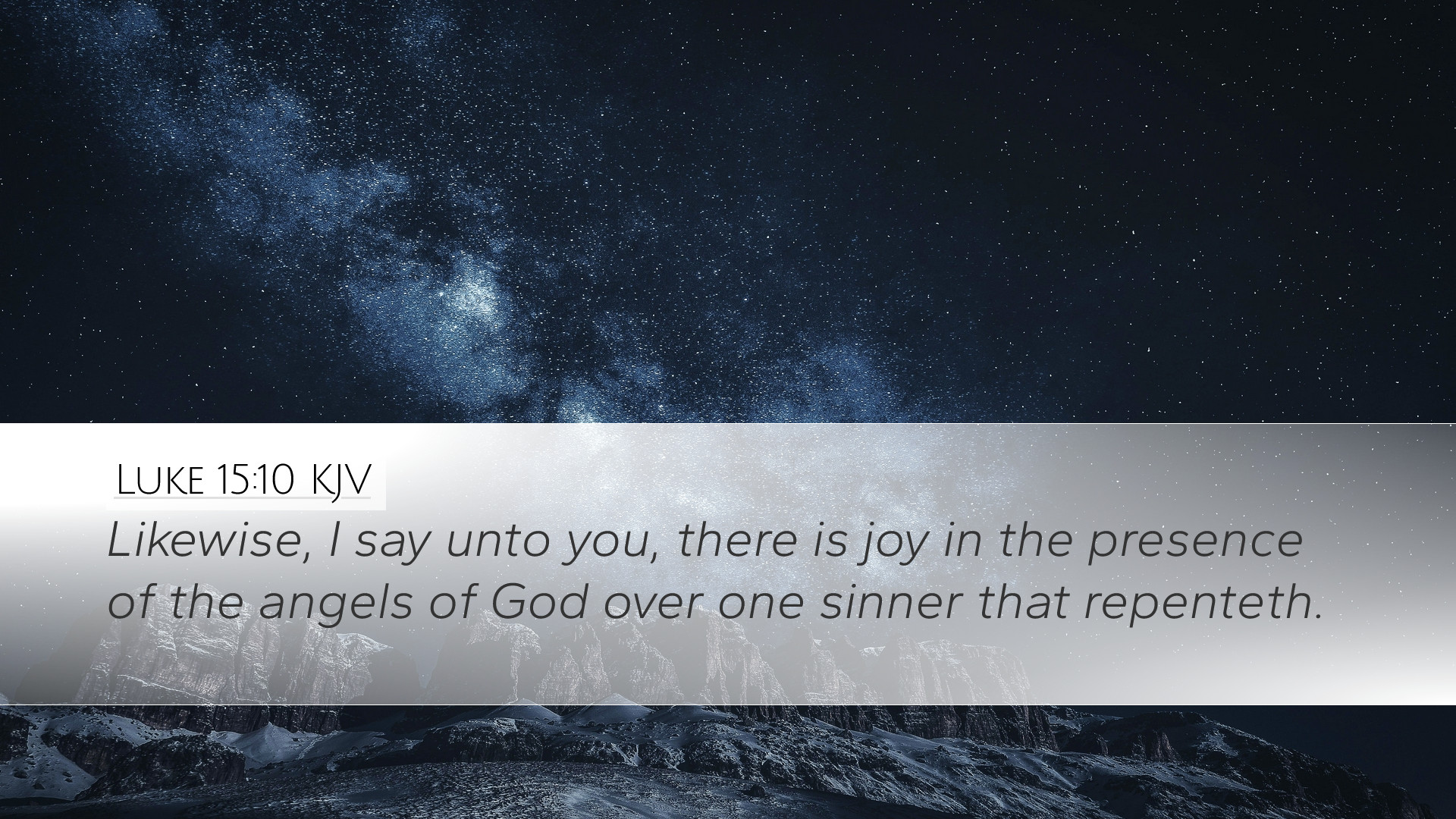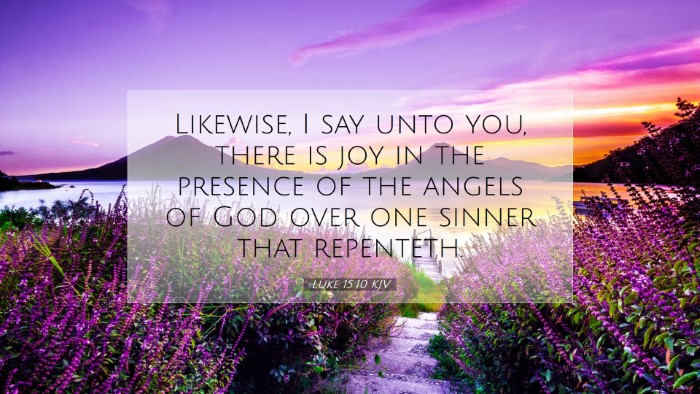Luke 15:10 - Commentary Summary
"Likewise, I say unto you, there is joy in the presence of the angels of God over one sinner that repenteth."
This verse encapsulates the profound joy in heaven that accompanies genuine repentance. It underlines the value of each individual soul and the celebration that ensues in the celestial realm when one turns back to God. The context of this verse is crucial to understanding its implications regarding God's love and mercy.
Contextual Background
Luke 15 is a pivotal chapter in the Gospel according to Luke, wherein Jesus presents three parables: the Lost Sheep, the Lost Coin, and the Prodigal Son. These narratives collectively embody themes of loss, recovery, and joyous celebration, particularly highlighting the nature of God's grace towards sinners.
Insights from Matthew Henry's Commentary
Matthew Henry emphasizes that the verse serves as a concluding remark to the two preceding parables. The joy in heaven indicates that divine beings—namely angels—rejoice over repentance. Henry notes:
- The Nature of Joy: The joy of angels portrays the earnestness of God's grace; it is not merely a superficial joy but one that reflects God's covenantal love.
- The Focus on the Individual: Each sinner's repentance triggers a cosmic celebration, highlighting that God values each soul deeply.
Insights from Albert Barnes' Notes
Albert Barnes provides a theological analysis emphasizing the character of God and the workings of divine grace. He reflects:
- Angelic Involvement: The phrase "in the presence of the angels" suggests a cooperative joy that reverberates through the heavenly realm.
- Repentance as a Central Theme: Barnes asserts that this verse elevates the significance of repentance in Christian life, positioning it as the precondition for salvation and intimacy with God.
Insights from Adam Clarke's Commentary
Adam Clarke elaborates by emphasizing the diverse responses to repentance. His observations include:
- Universal Value of Each Sinner: Clarke asserts that no sinner is insignificant; the heavens attest to the worth of every individual willing to repent.
- The Transformative Nature of Joy: The joy spoken of is transformative not only for the repentant sinner but also for the community of believers and the angels themselves.
Theological Implications
This verse invites deep theological reflection on several key concepts:
- The Nature of God: It reveals God as intensely personal and relational, longing for reconciliation with His creation.
- Understanding Repentance: True repentance is not simply feeling remorse; it involves a radical change of heart and direction towards God.
- Community and Celebration: The communal aspect of heavenly joy reflects the notion that the church, too, is called to celebrate the return of those who have strayed.
Practical Applications
The insights gleaned from Luke 15:10 find practical applications in the lives of pastors, students, and theologians:
- Encouragement for Evangelism: Pastors are encouraged to share the Gospel with fervor, knowing that the impact of their ministry can lead to heavenly joy.
- Inclusivity in Ministry: Churches are called to embrace and welcome the lost, reflecting God's joy in receiving those who repent.
- Fostering a Repentant Heart: Individuals should cultivate a spirit of repentance and humility, understanding their value in God's eyes.
Conclusion
Luke 15:10 embodies the heart of the Gospel and reveals the divine joy in the redemption of sinners. As highlighted in the commentaries from Matthew Henry, Albert Barnes, and Adam Clarke, it stands as a testament to God's unfathomable love and grace. The call for repentance is not only a theological principle but a joyous invitation to partake in the life of God, knowing that each step toward Him brings celebration in the heavenly realms.


